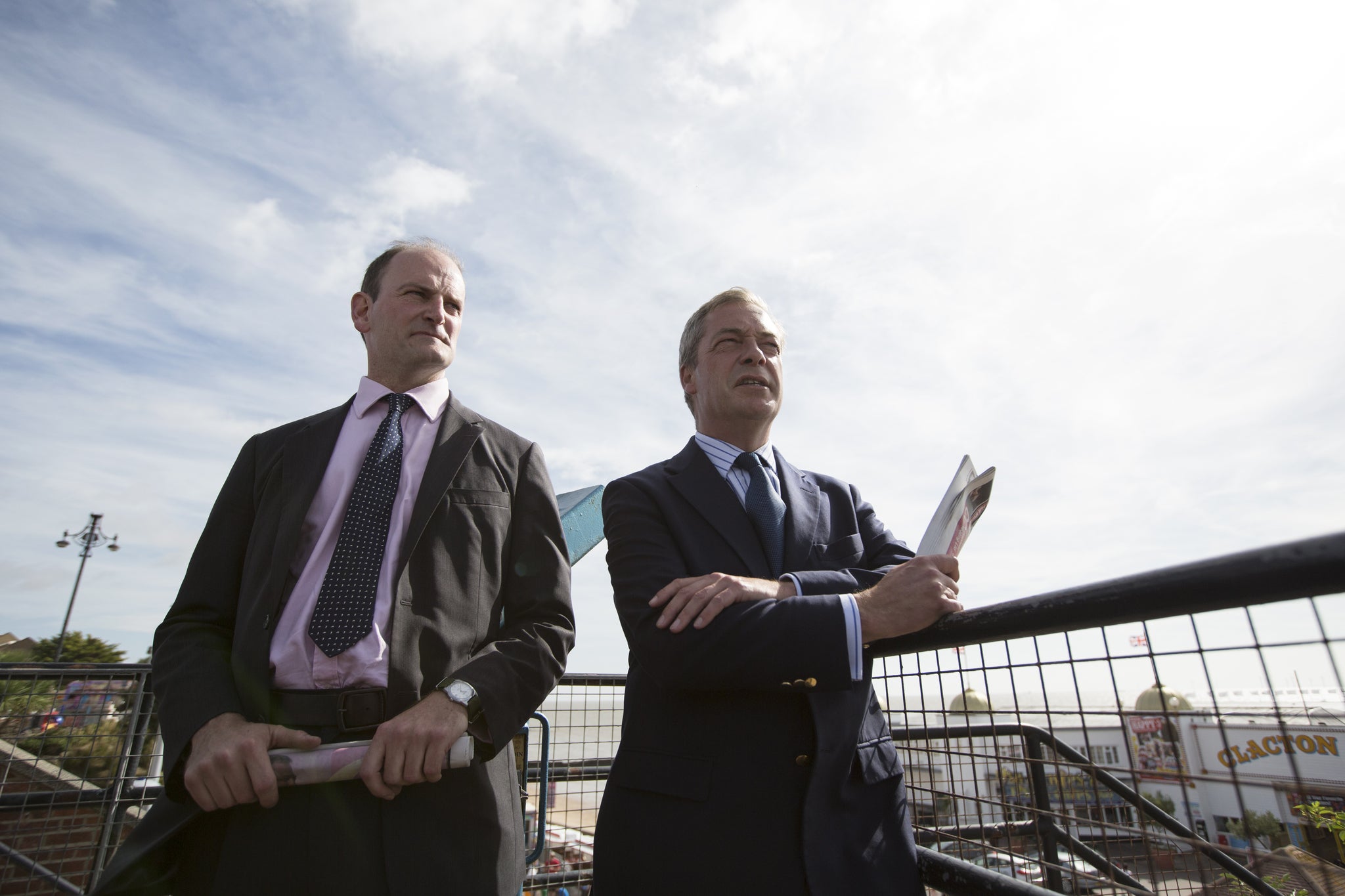My hometown is a political football – we deserve better than condescension and Brexit lies
Brexit voters in Clacton were promised a brighter future, a way out of deprivation and a return to the glories of the past, writes John Hyde

Thursday night’s BBC Question Time from Clacton was a difficult watch for those with affection for anyone from my hometown. The audience, hand-picked as Brexit voters and no doubt encouraged to air their views fervently, offered some bizarre views – one gentleman claimed to have followed immigrants from the boat to the benefits office, while another lady suggested that French and Germans going on their roofs had swayed her vote. Panellist Alastair Campbell telling them they had been lied to was met with a wall of silence.
The reaction on social media was predictable: these were ignorant bigots, refusing to see the error of their ways and showing their true, xenophobic colours. Such flag-wavers deserved the harsh economic realities they had voted for.
Yet to sneer and ridicule is to miss the point. While there is no excuse for intolerance, there are explanations for why so many in Clacton feel this way. This is a town subjected to years of decline, left to rot and exploited by snake oil salesmen promising they had the answers. What use is it telling people they stand to lose from Brexit when they have little to lose in the first place?
The joke slogan on the Essex coast has long been “Harwich for the continent, Clacton for the incontinent”. While the port town acts as a gateway to Europe, its seaside neighbour literally withers and dies, both in character and population.

Those aged 65 to 74 rose by 19 per cent between 2011 and 2021 and those aged 35 to 49 fell by 12 per cent. More than a third of the town is retired and Clacton (or, to be precise, the district of Tendring) is third-bottom in the country for residents in full-time employment.
Even without the statistics, it feels like a town in decline. Pound shops replaced national retailers and empty sites and charity shops dominate the town centre. The seafront and pier look better than ever, having undergone enormous recent investment, but beyond the exterior the town feels abandoned. Bank branches and court buildings have shut, and the local newspaper now operates from an office 15 miles away. The Woolwich call centre, which employed 500 people, closed 15 years ago.
Non-seasonal, educated, white-collar jobs disappeared – and so too the higher wages they paid. It is hardly surprising that 69.5 per cent of the town voted for Brexit when the people who tend to be Remain (younger, higher educated) have been forced out of town. The population of 15-19-year-olds fell by 14 per cent between 2011 and 2021 as people sought education and job opportunities elsewhere.
With only low-paid jobs available, poverty infected the town. The proportion of children living in poverty is almost 35 per cent, compared to 24 per cent in neighbouring Colchester. Jaywick (also in Tendring) is routinely maligned in the media as Britain’s “most deprived town”.
The tale of seaside towns in decline is well-trodden, but what sets Clacton apart is the invasion of those who cynically sought to exploit these factors. Nigel Farage has made regular visits (usually stopping for a photo op with an ice cream and dashing straight off), while Douglas Carswell was the first Ukip MP. Carswell, incidentally, was so struck by the town that he now lives in Jackson, Mississippi – some 4,553 miles away.
These people saw in Clacton a testing ground for the kind of rhetoric that would win the Brexit vote. Clacton was a petri dish taking poverty, despair, and nostalgia and injecting them with scapegoats to blame. Yet the town has largely not been impacted by immigration: it is 93 per cent English-born and among the lowest 40 per cent in the UK for population density.

The media loves Clacton. Left-wing newspapers do vox pops proving how awful the people there are (these are, invariably, done during working hours when the only participants are likely to be economically inactive) and right-wing papers use it as a clarion call for their dog whistles. All the while, no one in politics or the media asks the most pertinent question: how can we help this town?
Brexit voters in Clacton were promised a better future, a way out of deprivation and a return to the glories of the past. They were sold a dud, and those mocking their ignorance should bear in mind the hardship and exploitation they have been subject to.
Question Time came in, got what it needed and left again. People were asked what they thought, given the impression they were being heard, but ultimately the circus left town with nothing changed. It was ever thus.
John Hyde is a journalist from Clacton
Join our commenting forum
Join thought-provoking conversations, follow other Independent readers and see their replies
Comments
Bookmark popover
Removed from bookmarks